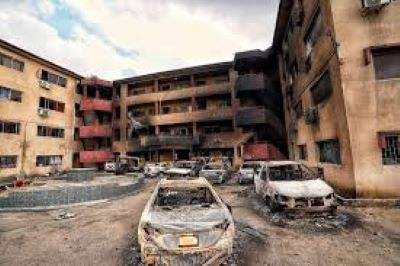Nigeria has a storied history of protests driven by economic hardship, social injustices, and governance failures. From pre-EndSARS protests to the recent August 1 hunger demonstrations, citizens have consistently taken to the streets to demand change. While these protests underscore the urgent need for reforms, the destruction of public and private properties during these events raises critical concerns. As Nigeria grapples with its infrastructure deficit, it is imperative to understand why protesters should avoid vandalism and why government officials must prioritize good governance to prevent violent agitations.
By Abdallah el-Kurebe
Pre-EndSARS Protests: Before the EndSARS movement, Nigeria witnessed several significant protests. One notable instance was the January 2012 fuel subsidy protests. When the government announced the removal of fuel subsidies, citizens erupted in demonstrations across the nation. The protests highlighted the populace’s frustration with economic policies perceived as detrimental to their well-being. While largely peaceful, these protests saw instances of violence and property damage, reflecting deep-seated discontent.
EndSARS Movement: The EndSARS protests in October 2020 were a watershed moment in Nigeria’s history. Initially focused on ending police brutality, the movement quickly expanded to address broader issues of corruption, unemployment, and poor governance. The peaceful demonstrations at locations like the Lekki Toll Gate in Lagos captured global attention. However, the tragic events of October 20, 2020, when security forces allegedly opened fire on unarmed protesters, led to widespread chaos and destruction, with significant damage to public and private properties.
ALSO READ Why Tinubu should fear Bangladesh-style unannounced protests – Falola
August 1 Hunger Protests: The recent August 1, 2024, hunger protests were fueled by economic hardship, including soaring food prices and the removal of fuel subsidies. Thousands of Nigerians took to the streets, demanding urgent governmental intervention. Unfortunately, these protests, too, devolved into violence in states such as Jigawa, Kano, Katsina, Borno, and Yobe, resulting in the imposition of 24-hour curfews. The destruction that accompanied these protests further strained the already fragile infrastructure and economy.
The Case for Peaceful Protests
While the frustration driving these protests is understandable, protesters must refrain from destroying public and private properties. Here are compelling reasons why:
- Infrastructure Damage Exacerbates Hardship: Nigeria’s infrastructure is already deficient. Damaging roads, bridges, and public buildings during protests only worsens the living conditions for everyone, including the protesters themselves. Rebuilding these structures diverts scarce resources away from other essential services.
- Undermines Public Support: Violent protests can alienate potential allies. When protests turn destructive, public sympathy often wanes, and the focus shifts from the underlying issues to the chaos and damage caused. Peaceful protests, on the other hand, are more likely to garner widespread support and attention.
- Legal and Safety Concerns: Vandalism and looting are illegal and can lead to arrests and legal repercussions. Moreover, violent protests pose significant safety risks to both protesters and bystanders. Maintaining peace ensures the safety and security of all involved.
Government’s responsibility is to provide good governance
Government officials play a crucial role in preventing protests from escalating into violence by addressing the root causes of public discontent. Here’s why good governance is essential:
- Addressing Economic Hardships: Policies that alleviate economic pressures, such as affordable fuel and food prices, can significantly reduce the likelihood of protests. Governments must prioritize economic stability and equitable growth to improve citizens’ quality of life.
- Ensuring Security and Justice: Effective law enforcement that respects human rights can prevent abuses that often spark protests. Transparent investigations and accountability for misconduct within security forces are vital.
- Investing in Infrastructure: Sustainable development and maintenance of infrastructure are essential. Reliable roads, electricity, and public services not only improve daily life but also demonstrate the government’s commitment to its citizens.
- Promoting Inclusive Dialogue: Governments must engage with citizens through regular consultations and dialogues. Listening to and addressing public grievances before they escalate into protests can foster a more harmonious society.
Lessons from Kenya
Kenya’s recent protests serve as a pertinent lesson for Nigeria. In Kenya, citizens have similarly taken to the streets to demand better governance and economic reforms. However, the Kenyan government’s proactive measures in addressing some of the protesters’ demands and engaging in dialogue have helped to deescalate tensions. This approach highlights the importance of government responsiveness in preventing protests from turning violent.
Finally, protests are a vital part of any democratic society, serving as a means for citizens to express their grievances and demand change. However, the destruction of public and private properties undermines the very objectives protesters seek to achieve. For their part, government officials must commit to good governance, addressing the root causes of public discontent and investing in sustainable development. By learning from past experiences and examples like Kenya, Nigeria can navigate its challenges more effectively, ensuring that protests remain a constructive force for change rather than a precursor to chaos.


